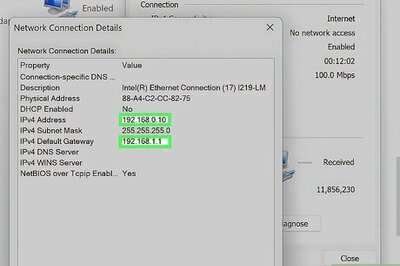
views
New Delhi: In a big worry for the Narendra Modi government, the India Meteorological Department has revised its Monsoon outlook to deficient. The IMD has said that India will only recieve 88% of rain as compared to the earlier forecast of 93%. North west region including the Delhi NCR, Haryana and Uttar Pradesh are likely to be badly hit. Prime Minister Narendra Modi has expressed concern over the issue and the Cabinet Secretary will chair a meeting on Tuesday to asess the situation. The news comes even as the country is battling a severe heatwave which has led to the deaths of over 2200 people.
"I have to say this with a heavy heart that as per our revised forecast, India will receive 88 per cent of rainfall of the LPA," Union Minister for Earth Sciences Harsh Vardhan said.
"We have been working to ensure that the forecast is right. But this time let's pray to God that the revised forecast does not come true," he said. He also added that in the last Cabinet meeting, PM Modi had already asked different ministries and departments to gear up for such an exigency.
The MET department has said that the monsoon is now expected to hit the Kerala coast by the June 4, three days after its normal onset date. The Southwest Monsoon had advanced over the Bay of Bengal by May 21. However, its progress has been sluggish because of anti-cyclone in the Arabian Sea.
The timely onset of the south-west monsoon is crucial for sowing of kharif (summer) crops such as paddy and a deficit in rainfall may hit output. Agriculture is heavily dependent on the monsoon as only 40 per cent of the cultivable area is under irrigation. Last year, the country had received 12 per cent less rains, which hit production of grains, cotton and oilseeds.
Agriculture growth stood at 0.2 per cent in 2014-15 fiscal. According to the government's estimate, total food grains production has declined to 251.12 million tonnes in 2014-15 crop year (July-June) from a record production of 265.04 million tonnes in 2014.
The Reserve Bank of India also said that the government should put in place a "contingency plan" to deal with the possibility of a below normal Monsoon and its impact on foodgrain production and prices. "What is clear is that contingency plans for food management needs to be in place to manage the impact of low production on inflation," RBI Governor Raghuram Rajan said.
"For the kharif (summer) season), the outlook is clouded by the first estimates of IMD predicting that soutwest monsoon will be 7 per cent below the long period average. This has been exacerbated by the confirmation of the onset of El Nino by the Australian Bureau of Meteorology," RBI said.
Against this backdrop, the RBI said, "Strong food policy and management will be important to help keep inflation and inflationary expectations contained over the near term. The food management plan should comprise of storage of adequate quantity of seeds and fertilisers for timely supply, crop insurance schemes, credit facilities, timely release of food stocks and the repair of disruptions in food supply chains, including through imports and de-hoarding, it said.




















Comments
0 comment